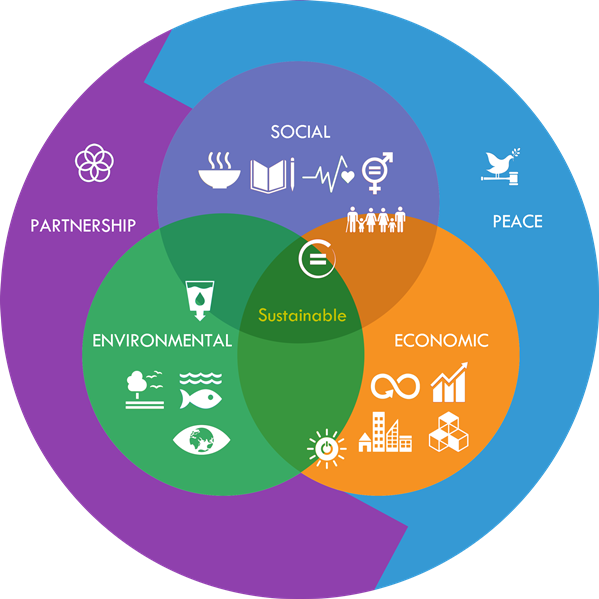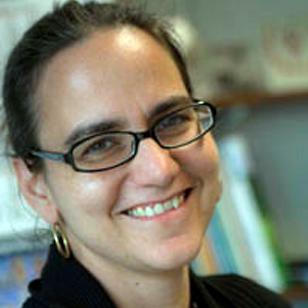Sustainable Development - What is there to know and why should we care?
In the global peace and development community, the SDGs appear in every opening speech and pop up in closing remarks around the globe. Different entities and organisations, as well as individuals identify “their goal” and pose with it for the photo opp. But what sits behind the 17 Sustainable Development Goals, and frankly – why should we care?
- The 2030 Agenda requires a fundamental overhaul of approaches to peace and development in ALL countries
In September 2015, governments agreed on the “2030 Agenda for Sustainable Development”, with a set of 17 Sustainable Development Goals (SDGs) at its core. The 2030 Agenda, together with the Paris Agreement under the United Nations Framework Convention on Climate Change, form the most comprehensive blueprint to date for eliminating extreme poverty, reducing inequality, and protecting the planet. The Agenda also builds on the provisions of the Addis Ababa Action Agenda of the Third International Conference on Financing for Development and the Sendai Framework for Disaster Risk Reduction and is grounded in the fundamental principles and norms of all major UN declarations and conventions. The agenda is rights-based and grounded in the Universal Declaration of Human Rights. For the first time, the world has a universal and integral plan of action for people, planet and prosperity, which requires all countries and stakeholder to act in concert.
- Placing sustainability at the core – a new approach to due diligence
Sustainable development is development that is grounded in five dimensions, which have been expressed through the “5 P's”, or five pillars of sustainable development: people, planet, prosperity, as well as peace and partnerships. These 5 P's provide a new guidance for due diligence for any intervention to address development and societal challenges across the world. For a development intervention to be sustainable, it needs to take into account the social, economic and ecological consequences it generates and lead to conscious choices in terms of the trade offs and spin offs it creates. For a development intervention to be sustainable, decision makers involved need to consider to what extent it is developed, owned and carried forward in partnerships, including with the people who will live with the consequences of the intervention. One also needs to look at the dimension of peace and governance, analysing the wider societal context in terms of drivers of tension and conflict and effects on social cohesion and inclusion, anticipating the consequences it could generate to exacerbate or appease them. The sustainable development approach provides a new tool for due diligence to identify the most appropriate development intervention in a given context. It obliges us to ask new questions and seek answers from new sources. It needs to trigger new dialogues, bringing actors and constituencies together that would not typically talk to each other and work together.

- Multi-stakeholder engagement is key
The 2030 Agenda calls for fundamental transformation in a number of ways: beyond the specific goals, which are a result of a political process and compromise, it calls for new approaches to the way we identify needs and opportunities and the partners who need to be engaged to address them. In a world where social, environmental and economic challenges spread with little respect for national boarders and where conflicts are not managed within national boundaries, governments can’t do the job alone. The Agenda calls for “Leaving no one behind”- this again requires a fundamentally different approach to identifying and addressing extreme poverty and inequality in a way that leverages the capacities of those most left behind to become agents of change, rather than beneficiaries of aid.
- The UN needs to re-define its role
One key imperative that results from the integrated and universal nature of the agenda, is clearly that the United Nations System itself needs to redefine and rethink its role and function. In today’s world, there is no space for the UN to continue “business as usual”. To support implementation of the agenda, the UN system must seize its strategic position as catalyst for change. The system was set up to function in separate, specialised agencies, focusing on their area of subject matter expertise – the new agenda calls for holistic approaches, better coordination and integration, both across institutions, actors and players, as well as in terms of integrating core knowledge and approaches, pulling together the expertise from within the different parts of the system to support inter-governmental processes and distil it into concrete and coherent policy advice.
- Paving the way for change through institutional and individual learning and reflection
Access to knowledge is pivotal for the UN system to stand by these requirements and carry out effective operations on the ground. At the same time and based on a transformative and collaborative leadership model, the UN System will need to develop a high-performing workforce that is increasingly cross-disciplinary, comfortable working across UN pillars and skilled in leveraging multi-stakeholder partnerships. Individual staff, but also institutions themselves need to engage in a continuous process to expand and upgrade their knowledge. How to ensure that UN entities are agile enough to address these challenges? That UN staff understand the fundamental mission they have dedicated themselves to and are able to draw on the knowledge across the system, regardless of the sub-entity where they sit? How to encourage learning and innovation across the system in a way that allows the UN to remain relevant amidst a multitude of new actors?
- Knowledge about the WHAT and the HOW
To address these challenges, knowledge about the agenda in its breadth and depth is key. Knowledge about the agenda entails knowledge about WHAT sits behind its substantive dimensions, including the core values they are grounded in, as well as knowledge about HOW these dimensions can be brought together in terms of policies and procedures within the UN System and beyond. It also requires a profound reflection about HOW different actors need to adapt and change, leveraging innovative approaches and critically rethinking the way the UN system functions and what changes are needed.
Advocacy and awareness raising for the goals will be key to ensure the agenda is known and the political pressure to work towards it is kept up. For the agenda to really make a difference, however, knowledge and deep reflection about the changes it requires will be crucial for the UN and partners to be up to the task of seriously and profoundly addressing the biggest challenges people and the planet are facing – within our lifetime.
We believe learning has to reflect on examining the goals and their overarching principles in detail, assess specific needs of UN Country Teams and the UN System as a whole and provide spaces to lay out new pathways, reflect about ways to forge stronger partnerships, step up knowledge and capacities in the area of measurement and data collection, question strategic leadership approaches in a changed world and strengthen advocacy and communication efforts around the fundamental shifts the agenda requires.
What do you think is important to learn? Join the discussion on our social networks.
